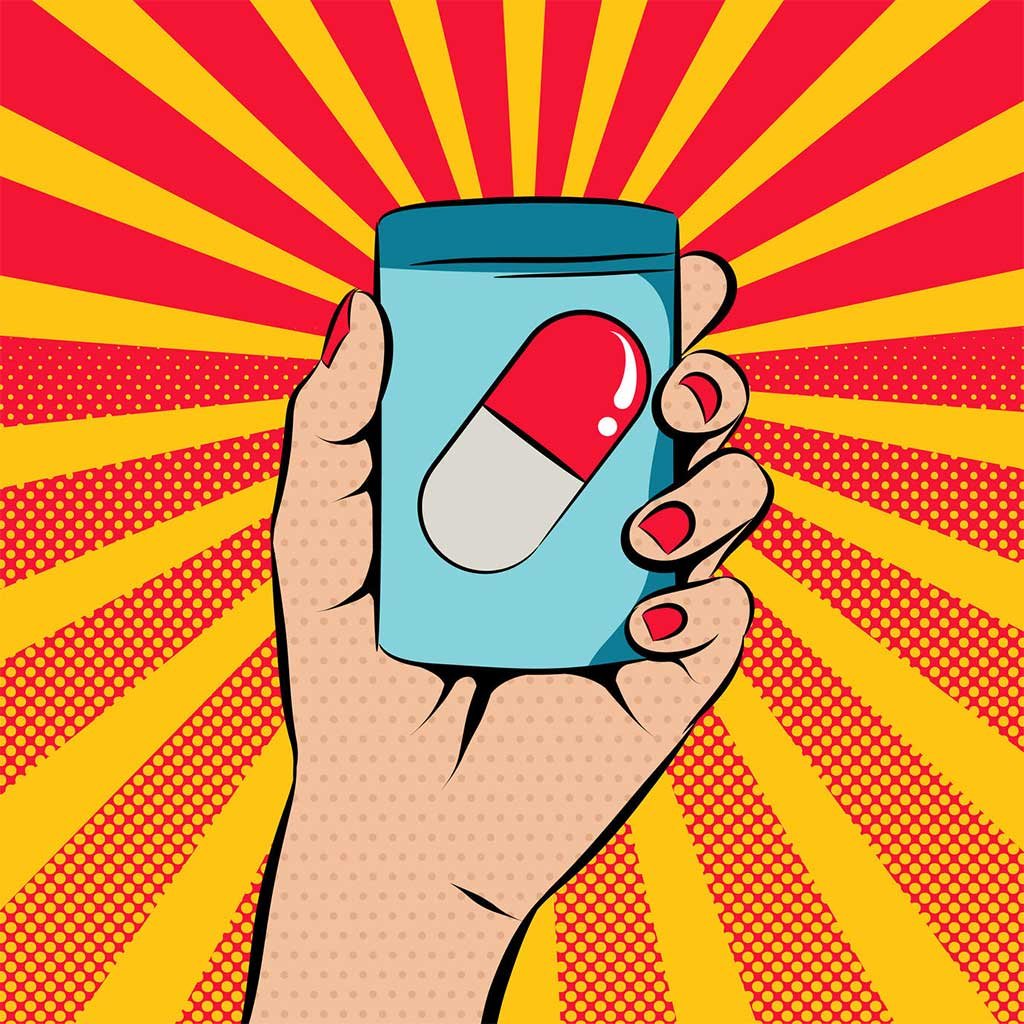October 7, 2020
By Suvrita & Ganga Nair
A lot of times, discussions and decisions around psychiatric medication can become a deterrent to seeking mental health support because of the mystery and stigma surrounding it. In approaching this decision, there are two scenarios one may encounter:
1) Advice to manage mental health distress through lifestyle changes and willpower instead of considering medication. In other words, pill shaming.
2) Prescription of medication without adequate information regarding risks and side-effects, inadequate information on alternative mental health intervention options or supportive tools and techniques and strong advice against discontinuation indicating long term, if not, lifelong dependence on medicines.
While the former is anti-medication, the latter can be uncritically pro-medication and this either-or thinking is problematic. What gets lost in this absolutist stance, is the person, their needs and their right to make an informed choice. Therapy is a journey to understand oneself better and discover the distinctive methods that work for you. This journey will mean trial and error. Facing these unknowns require one to remain flexible and learn as we go irrespective of what has been ‘prescribed’.
Psychiatric medication can be massively helpful to a person experiencing emotional distress.
They can improve sleep, regulate mood, provide a much needed respite from extreme emotional states or facilitate navigation of critical areas in life. This can further foster an increased ability to access other sources of support and healing.
Situational factors also often contribute to the decision.
A person’s life situation, access to support, life stressors, the socio-political environment can have a significant impact on their mental health and subsequently the need and decision to take/not take medication.
However, one person’s experience of a drug may not be the same as another person’s. You are allowed to have a different experience and to discuss the same with your mental health professional to alter, revise or come off the drug. The usefulness and impact of medication can also shift for an individual over time. Which is to say that after starting medicines, the benefits and side effects of the medication should be evaluated regularly and accordingly a call to continue/discontinue can be taken. People have a right to information as well as to partake in decisions regarding the course of their mental health intervention. The information about how medication works, and its possible harm is key to making an informed choice. However, this information is frequently withheld while prescribing medication and heightened while advising against it.
The field of psychiatry and psychology is not foolproof science.
Its functioning has been influenced by societal morals and values since time immemorial. There is also ample evidence about the impact of capitalist pharmaceutical companies on psychiatry’s (mal)practice. For instance, Robert Whitaker and Lisa Cosgrove in their book, Psychiatry Under the Influence, shed light on this while speaking about the subsequent denial of informed consent to users of psychiatric medication.
This demands a shift for mental health professionals from the position of an “expert” that determines diagnoses and treats people without taking into consideration people’s agency and their expertise about their own lives to a more nuanced, situational and person centric approach.
The Icarus Project and Freedom Centre in their publication- Harm Reduction Guide to Coming Off Psychiatric Drugs- have suggested an approach that we wholeheartedly endorse – one that takes into consideration all the available information, followed by making a decision that best reduces harm: of extreme distress and states as well as of side effects of medication.
If you are considering medication, ask your psychiatrist for access to information about your diagnosis and medication. Here are a few questions to get you started:
| About the Diagnosis | About the medication | About tapering off/discontinuing medication | About mental health intervention/support |
|---|---|---|---|
| What is my diagnosis (if any)? | How does the prescribed medication work? | What is the best way to taper off the medicine? | What other things could help in managing my difficulties? |
| How did you make the diagnosis? | What will happen in my body? | What could be the effects of tapering off the medicine on my body? | What has worked/not worked with other people with similar difficulties? |
| What other diagnosis did you consider? | How will I know that it is working/not working? | How best can I reduce harm during this process? | |
| What are the possible short and long term side effects? | |||
| What are some signs that I should consider a different medication or change in dosage? | |||
| For how long do I need to take the medication? | |||
| What could happen if I miss a dose? |
When it comes to psychiatric medication, it is often about taking calculated risks. And people’s choice to take/not take or continue/discontinue medication after having considered all the information are all entirely valid.
Note: In India, the Mental Health Care Act of 2017 aims to protect the rights of people receiving mental health care and promotes their agency and autonomy in decision making with regards to the management of care. In the event, an individual does not have the ‘capacity’ to make informed decisions regarding their care, they can choose to nominate a representative they trust to make these decisions on their behalf. Capacity is assessed by a trained mental health professional as outlined in the Act.
References:
- Cosgrove, L., & Whitaker, R. (2015). Psychiatry Under the Influence: Institutional Corruption, Social Injury, and Prescriptions for Reform. New York: Palgrave Macmillan.
- Hall, W. (2012). Harm Reduction Guide to Coming Off Psychiatric Drugs. The Icarus Project; Freedom Centre.
- Namboodiri V. Capacity for mental healthcare decisions under the Mental Healthcare Act. Indian J Psychiatry 2019;61, Suppl S4:676-9


Very well written.